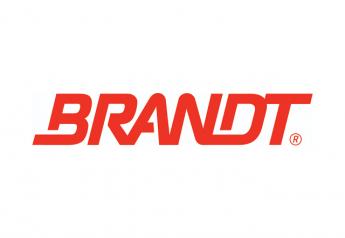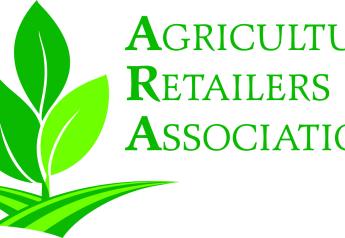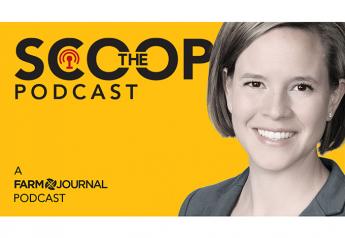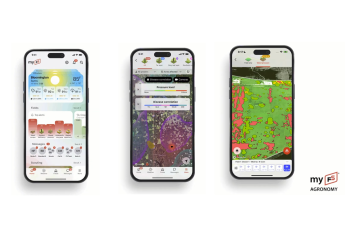Protecting Seed Investment From the Ground Up – Part Two

While the growing season starts with what growers put in the ground, it certainly doesn’t end there. When it comes to protecting seed investment, you have a number of important calls to make. In addition to selecting a seed treatment, variety and system, your customers will soon be working to get ahead of weeds, diseases, plant stressors and insects. When helping them build their plan for the season, keep in mind that BASF offers an expansive portfolio of soybean products, in addition to their Grow SmartTM Rewards program, and a team of people who care as much about your business and your customers as you do. Encourage your growers to consider these tips heading into 2019.
Start clean, stay clean
Weeds. Nobody likes them, but everyone has to learn how to deal with them. Keeping fields clean is important to protecting your customer’s seed investment because when their crop has to share space with weeds, it has to compete for vital nutrients that are critical to the plants.
Weeds can pose serious threats to growers’ crops due to the increasing resistance and high reproductive capacities of species such as waterhemp and Palmer amaranth. For example, a single female Palmer amaranth plant can produce anywhere between 100,000 and 500,000 seeds[1], allowing the weed to spread aggressively with ease. Waterhemp, another highly reproductive species of pigweed, has shown resistance to triazines, ALS inhibitors, PPO inhibitors, glyphosate, HPPD inhibitors and 2,4-D[2].
To help your customers manage pests such as waterhemp and Palmer amaranth, encourage them to use a layered herbicide program that includes three to four different modes of action. Using a preemergence herbicide with multiple sites of action, such as Zidua® PRO herbicide, can provide overlapping weed protection. A comprehensive weed management program should include a different mode of action in their postemergence herbicide than they used pre. This is especially important: not only as it relates to managing weeds, but to managing resistance as well.
If your customer is using the LibertyLink® system, Liberty® herbicide can also help them manage resistant weeds postemergence. Liberty herbicide is able to reduce the costliness of missed weeds, protecting yield and profit as the only working nonselective herbicide still effective on grasses and broadleaf weeds such as Palmer amaranth. Unlike anything on the market, its unique, patented formulation delivers more performance, more crop safety, more consistency and more satisfaction at 97%. And with Grow Smart Rewards, Liberty and Engenia herbicides qualify your customers to start getting the most out of every acre, and the most value for their investment.
For those using dicamba-tolerant soybeans, advanced dicamba products such as Engenia® herbicide can be leveraged in your postemergence weed management plans for 2019. With its additional site of action, Engenia herbicide is effective on more than 200 broadleaf weeds including glyphosate-resistant weeds. It’s a broad-spectrum solution that controls the toughest broadleaf weeds such as Palmer amaranth, waterhemp and giant ragweed.
Effective residual control is an increasingly critical component of any weed management program. Growers can add long-lasting residual control to most preemergence herbicide applications – as well as postemergence applications of herbicides such as Liberty herbicide or Engenia herbicide – by leveraging a strong residual option such as Outlook® herbicide. Residual herbicides offer an added layer of protection to help your customers keep fields clean long after their application. Outlook herbicide can also help increase efficiency by delivering flexibility as well as low use rates. Not to mention, Outlook herbicide activates with as little as one-quarter inch of rain.
Prioritize Plant Health
Fungicides are a critical tool in disease management, especially for pervasive diseases such as target spot, frogeye leaf spot and Septoria brown spot. For most fungicides, the conversation stops with disease management, but BASF fungicides go the extra mile and provide the additional ROI and yield of BASF Plant Health benefits.
When it’s hotter than Hades or a hailstorm hits, your customers aren’t the only ones stressing, because chances are, their plants are stressed too. Choosing a BASF fungicide that delivers Plant Health benefits — such as Priaxor® Xemium ® brand fungicide — can mitigate both the biotic, or pathogens, and the abiotic, or environmental, stresses to help plants optimize production and grow more efficiently. When plants are exposed to abiotic stressors, like extreme heat, reactive oxygen species (ROS) and a hormone called ethylene can be produced. ROS production can lead to oxidative stress in the plant and ethylene can then lead to leaf senescence, premature dropping of pods, and ultimately, yield loss.
Priaxor fungicide delivers proven Plant Health benefits that help mitigate the negative effects of stress, such as oxidization, helping growers to see consistent yield benefits come harvest. Multiyear studies have shown that Priaxor fungicide provides a positive yield response more than 92 percent of the time with an average 4.6 bu/A yield increase when applied at R3 in soybeans.
Give insects the boot
Nematodes, foliar disease, weeds and weather can all cause your growers a major headache, but the list doesn’t stop there. Piercing-sucking insect pests, such as aphids, can cause serious and costly damage to your customers’ soybean crops. Nationwide, they cause nearly $500 billion in crop loss each year. Additionally, insect pests are becoming increasingly resistant. In fact, insecticide resistance in the United States adds an estimated $40 million to the total insecticide bill for growers across the country.
These factors make choosing the right insecticide an important part of helping growers protect their seed investment. Due to increasing resistance, encourage your customers to leverage new chemistry and unique modes of action when selecting an insecticide. Starting in 2019 BASF brings to you SefinaTM Inscalis® insecticide — to help protect their plants and their bottom line. Sefina insecticidefeatures a unique active ingredient that works by moving through the leaf to control pests on the underside. Sefina insecticide’s fast onset of action causes insect feeding to quickly stop, limiting plant damage.
From weeds and disease to insects and abiotic stress, growers certainly have no shortage of things to worry about each growing season. Luckily, BASF’s robust soybean portfolio offers agricultural solutions to help you build your business while helping your growers protect their seed investment from the ground up throughout the growing season.
Connect with your BASF business representative to learn more about how your customers can leverage the full BASF soybean portfolio in 2019, or visit GrowSmartSoybeans.com to learn more. Not sure who your rep is? Find them here.
Engenia herbicide is a US EPA Restricted Use Pesticide. Additional state restrictions may apply.
Always read and follow label directions.
Zidua , Liberty, LibertyLink, Outlook, Priaxor, Xemium, Engenia, and Inscalis are registered trademarks and Sefina and GrowSmart are trademarks of BASF.
[1] Behnken, Lisa; Bongard, Phyllis; Breitenbach, Fritz; et al. University of Minnesota Extension. “Preventing Palmer amaranth in Minnesota.” Retrieved from: https://extension.umn.edu/weed-identification/preventing-palmer-amaranth-minnesota#why-it’s-a-threat-1121111
[2] Ikley, Joe. Purdue University Department of Botany and Plant Pathology. (March 2018). “Waterhemp”. Retrieved from: https://ag.purdue.edu/btny/ppdl/Pages/POTW2018/test-page.aspx







